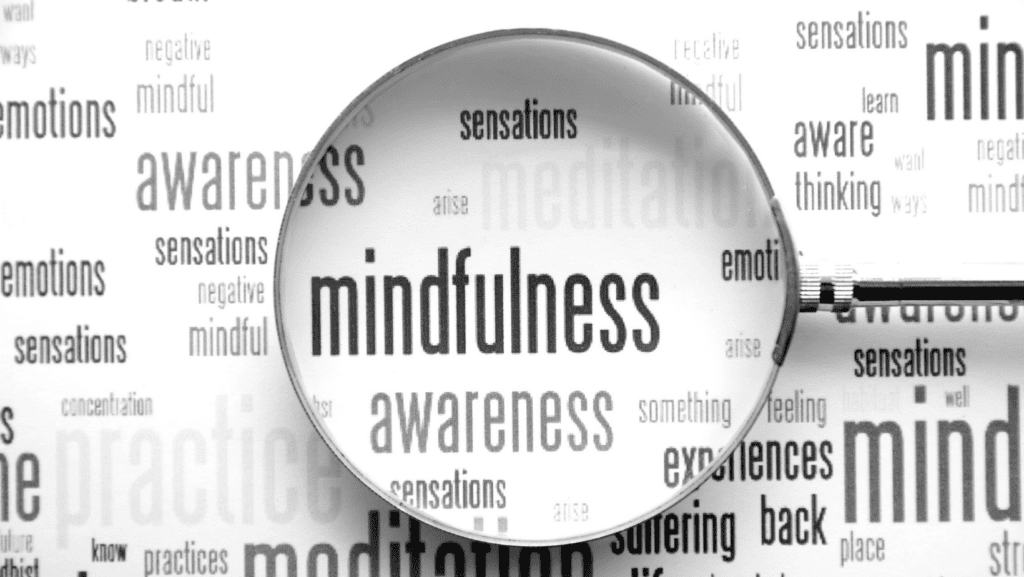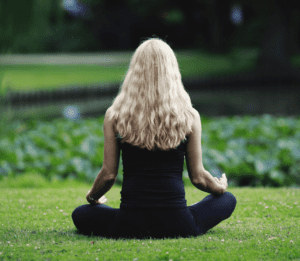 By John Mysz, LCSW –
By John Mysz, LCSW –

John Mysz is VSC’s full-time Licensed Clinical Social Worker (LCSW).
Being overwhelmed at work as a healthcare professional almost seems like it should be in the job description at this point. The common sentiment of “overworked and underpaid” often rings true for many of us throughout our careers. Unfortunately, COVID 19 has only made this more salient. We find ourselves looking to cover shifts that seem impossible to fill, skipping lunch and bathroom breaks, and growing more impatient with each other and our clients. Many of us like to call this working hard, but the fact is that some of this makes work unbearable or overwhelming so we, our coworkers, and our clients suffer because of it.
Take a minute and see if any of the following things hit home for you: Dreading coming into work, frequent complaining in and out of work, saying things like, “I don’t have time to eat/use the bathroom”, or having so many different thoughts/scenarios in your head that you can’t even finish one before you’re called to see another client.
I want to acknowledge that this does happen in your life AND it’s very common. However, we’re taught to work as hard as humanly possible, regardless of what toll it takes on us. We don’t let ourselves have a minute to rest or slow down because then we might miss something for the client. While this might be true in some scenarios, they truly come few and far between. The bigger problem is that we refuse to allow ourselves the time and respect to take a second to step back and slow down.
 Slowing down is imperative to our well-being and therefore our clients’. This is a central tenant to mindfulness. We’ve all heard of this at some point by now, but it’s often characterized by an image of a monk on a mountain in front of a sunset. This is not what I’m talking about. I’m talking about taking moments or minutes of time and doing our best to live in them, not in the past or future. This means bringing awareness to ourselves, our bodies, and our minds. The most important part of this practice is that the awareness is KIND, not judgmental. What you practice becomes permanent, or at least grows stronger. So, when engaging in mindfulness, think about how you would like to grow. If while breathing you are criticizing yourself for mentally wandering, or others for believing in this practice, you will only build your capacity for judgment. If you allow your mind to wander, acknowledge it, and gently bring it back to focus, you will build self-compassion and kindness.
Slowing down is imperative to our well-being and therefore our clients’. This is a central tenant to mindfulness. We’ve all heard of this at some point by now, but it’s often characterized by an image of a monk on a mountain in front of a sunset. This is not what I’m talking about. I’m talking about taking moments or minutes of time and doing our best to live in them, not in the past or future. This means bringing awareness to ourselves, our bodies, and our minds. The most important part of this practice is that the awareness is KIND, not judgmental. What you practice becomes permanent, or at least grows stronger. So, when engaging in mindfulness, think about how you would like to grow. If while breathing you are criticizing yourself for mentally wandering, or others for believing in this practice, you will only build your capacity for judgment. If you allow your mind to wander, acknowledge it, and gently bring it back to focus, you will build self-compassion and kindness.
Research has shown this practice, if done with relative frequency, actually changes our brains regardless of age, gender, or race. It has been shown as effective treatment for burnout, compassion fatigue, anxiety, depression, and many other mental health concerns, including addiction. It lowers our stress response and allows us to think more clearly at the moment, and mediates our reactions. What’s even better is that the research isn’t that new, and it’s been proven time and time again since its inception. Jon Kabat-Zinn from the University of Massachusetts Medical School developed the Mindfulness-Based Stress Reduction program in the 70’s and conducted scientific studies on his participants that showed these same results, as well as an increase in flu shot immunity response. Since then, we’ve continued to research the practice, and it has continuously shown positive results.
 Our brains yearn for change and development. Allow it to do so in a healthy way by fostering compassionate and kind connections, rather than bitter and judgmental ones. This can be done in as little as minute-long increments throughout the day. I know in the healthcare field, we feel like we don’t even have that time, but we do. Look at the resources below to help guide you through starting this new change in your life. Remember, take this challenge with kindness.
Our brains yearn for change and development. Allow it to do so in a healthy way by fostering compassionate and kind connections, rather than bitter and judgmental ones. This can be done in as little as minute-long increments throughout the day. I know in the healthcare field, we feel like we don’t even have that time, but we do. Look at the resources below to help guide you through starting this new change in your life. Remember, take this challenge with kindness.
Disclaimer: For those struggling with their mental health, it is my suggestion that you begin a mindfulness routine, but also reach out to myself, the VSC EAP (Employee Assistance Program for counseling), or an outside mental health professional to help guide you through recovery. If you need help finding a therapist or other resources or just want to talk, I am more than happy to help. Stop by, I’ll have candy.
John Mysz, LCSW
John Mysz is VSC’s full-time Licensed Clinical Social Worker (LCSW).
Relevant Resources
Mental Health Resources for Veterinary Teams
FREE online Mindfulness-Based Stress Reduction program with videos, meditations, zoom meetings, and an online support group
Insight Timer – Free app on the Apple Store or Google Play Store that has thousands of free meditations, including body scans and sleep meditations/music, as well as free courses to learn from
Other apps are Calm, Buddhify, and Headspace, but often require some form of subscription
Set reminders on your phone during your shift with questions like
- “Am I hungry?”
- “When did I last use the restroom?”
- “How’s my heart rate/breathing?”
- “If I take one minute to breathe, how bad would that really be?”
References
Mindfulness-based stress reduction and health benefits: A meta-analysis
